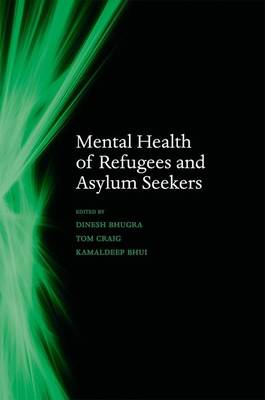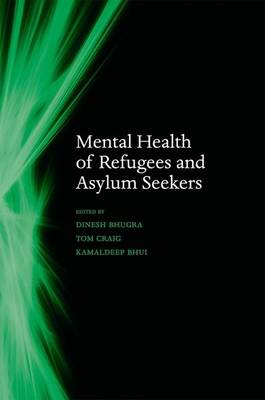
- Afhalen na 1 uur in een winkel met voorraad
- Gratis thuislevering in België vanaf € 30
- Ruim aanbod met 7 miljoen producten
- Afhalen na 1 uur in een winkel met voorraad
- Gratis thuislevering in België vanaf € 30
- Ruim aanbod met 7 miljoen producten
Zoeken
Mental Health of Refugees and Asylum Seekers
Dinesh Bhugra, Tom Craig, Kamaldeep Bhui
Paperback | Engels
€ 117,45
+ 234 punten
Omschrijving
Thoughout the world the number of refugees and asylum seekers continues to increase at an astonishing rate. Given that most will have left their country due to persecution, war, or appalling violations of their human rights, many will have specific mental health needs. Cultural and socioeconomic factors play a major role in expressions of distress, help seeking, pathways into care, and acceptance or rejection of treatments. Being a refugee or asylum seeker raises questions about an individual's self respect and altered identity. Too often though, the needs of this population are ignored by policy makers and clinicians, and these people are left to fend for themselves. Mental Health of Refugees and Asylum Seekers presents both the theoretical and practical aspects of the mental health needs of refugees and asylum seekers. It looks at the impact of migration on mental health and adjustment, collective trauma, individual identity, and diagnostic fallacies. A practical section highlights cultural factors, ethnopsychopharmacology, therapeutic interaction, therapeutic expectation and psychotherapy. The final part of the book focuses on special problems - such as bereavement, sexual violence, and post traumatic stress disorders, as well as considering mental health problems in special groups, such as child refugees. This book will be an essential resource for all mental health professionals- helping them better understand the needs of refugees and asylum seekers, how their problems can be managed, and how they can best be helped.
Specificaties
Betrokkenen
- Auteur(s):
- Uitgeverij:
Inhoud
- Aantal bladzijden:
- 320
- Taal:
- Engels
Eigenschappen
- Productcode (EAN):
- 9780199557226
- Verschijningsdatum:
- 7/10/2010
- Uitvoering:
- Paperback
- Formaat:
- Trade paperback (VS)
- Afmetingen:
- 229 mm x 152 mm
- Gewicht:
- 498 g

Alleen bij Standaard Boekhandel
+ 234 punten op je klantenkaart van Standaard Boekhandel
Beoordelingen
We publiceren alleen reviews die voldoen aan de voorwaarden voor reviews. Bekijk onze voorwaarden voor reviews.











